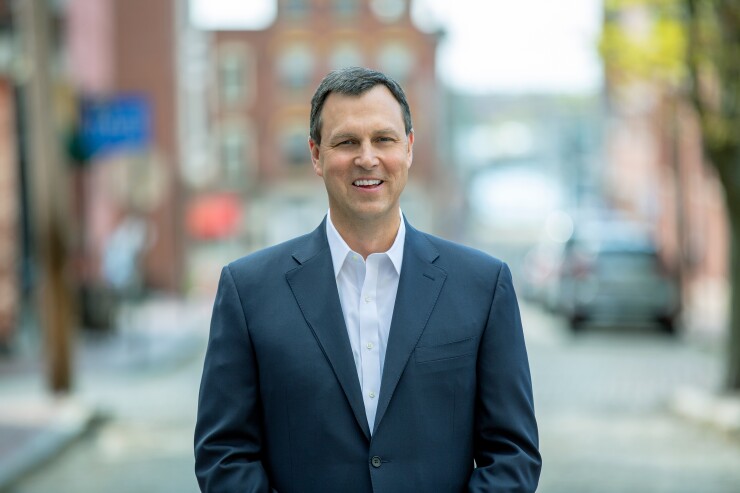
Community banks like to tout their commitment to the local markets they serve. Sometimes, this requires recognizing shifts in demographics and unique needs that accompany those changes.
Such was the case for Androscoggin Bank in Maine. It observed a relatively small but steadily growing Muslim population in its home city of Lewiston — the state's second largest — as well as the more populated Portland area in which it also operates. Precise numbers are difficult to gauge because census data tends to trail population inflows, but World Population Review estimates at least 17,000 Muslims in Maine, up from nearly none at the start of the century.
This followed an influx of immigrants to Maine from Somalia, Afghanistan, Iran, Iraq, Kosovo and elsewhere over the past two decades. However, homeownership has been slower to keep pace because adherence to religious law for devout Muslims — known as Sharia —
Androscoggin Bank saw other banks, credit unions and fintechs find ways to craft mortgages that are friendly to followers of Islam in states such as
Without homeownership, Androscoggin President and CEO Neil Kiely said in an interview, Maine's Muslim residents "are denied economic empowerment that adversely impacts communities. This can have generational impacts."
The $1.5 billion-asset bank spent more than a year studying the matter and how best to meet prospective customers' needs while still meeting its own obligations to maintain profitability and meet regulatory requirements. It ultimately landed on a product that falls under the banner of "ijara." This is essentially a lease-to-own arrangement in which the bank purchases the property. The customer technically rents it, but a portion of each payment goes toward the tenant's future ownership of the property. The home is registered in the buyer's name once the loan amount is paid in full.

Kiely said that, ultimately, the economics of these loans align with traditional mortgages — that is, other customers who are paying interest as they go ultimately pay the bank the same amount over time. As such, Kiely said, it is really a matter of the bank taking the time — and making the effort — to craft solutions for customers with unique needs.
"This is a way to rectify challenges, a way to roll up our sleeves and help," he said. "And the demand is there."
The bank recently launched the product and closed its first Islam-compliant mortgage earlier this year. It has several more in the works and expects the product to gain popularity in coming years as word spreads and the Muslim population continues to grow.
"This is already resonating," Kiely said.
Guidance Residential, a small mortgage bank in Reston, Virginia, that specializes in home loans that comply with Sharia said there are two other models, aside from ijara, to provide Islamic home financing. One is "musharakah," a form of co-ownership between the homebuyer and the financing company. The two parties co-invest in a property. In a version called diminishing musharakah, the homebuyer gradually buys out the financier's stake, while paying a fee to use the part of the property still owned by the financier.
The other, "murabaha," involves the financier buying the home and selling it to the customer on a deferred basis at an agreed-upon profit. The customer pays a deposit and repays the financier over a period of time, including a profit charge with each payment. This is not a loan with interest — it is a resale with a deferred fee, according to Guidance.
In Maine, Kiely said, larger macroeconomic trends are the lingering hurdles standing in the way of more Muslims buying homes. The number of houses available for sale remains stubbornly low, he said, following the pandemic and the slowdown in homebuilding that followed. Currently high interest rates are another factor. While Islam-compliant products do not involve interest rates, the financial terms of such mortgages mirror the costs of conventional home loans.
Freddie Mac said the 30-year fixed-rate mortgage averaged 7.23% last week, the highest level since 2001 after multiple Federal Reserve rate hikes over the past year to tame inflation.
"As rates remain high and supply of unsold homes woefully low, incoming data shows that existing homes sales continue to fall," said Sam Khater, Freddie Mac's chief economist. "However, there are slightly more new homes available, and sales of these new homes continue to rise, helping provide modest relief to the unyielding housing inventory predicament."
Kiely said he, too, is seeing improvements in new-home construction in Maine, and he anticipates further advances in coming years.
"Over time, with more homeownership, families build wealth and communities overall benefit as a result," Kiely said. "That's the goal."






